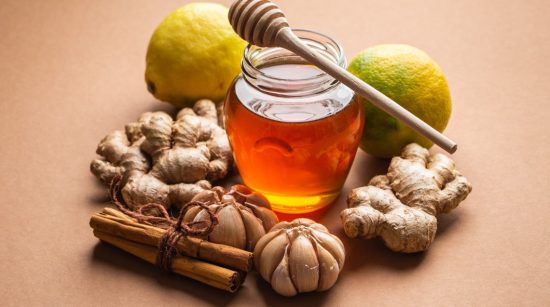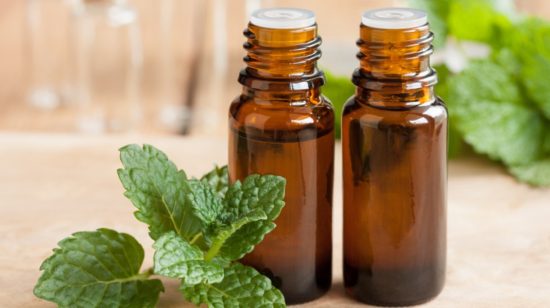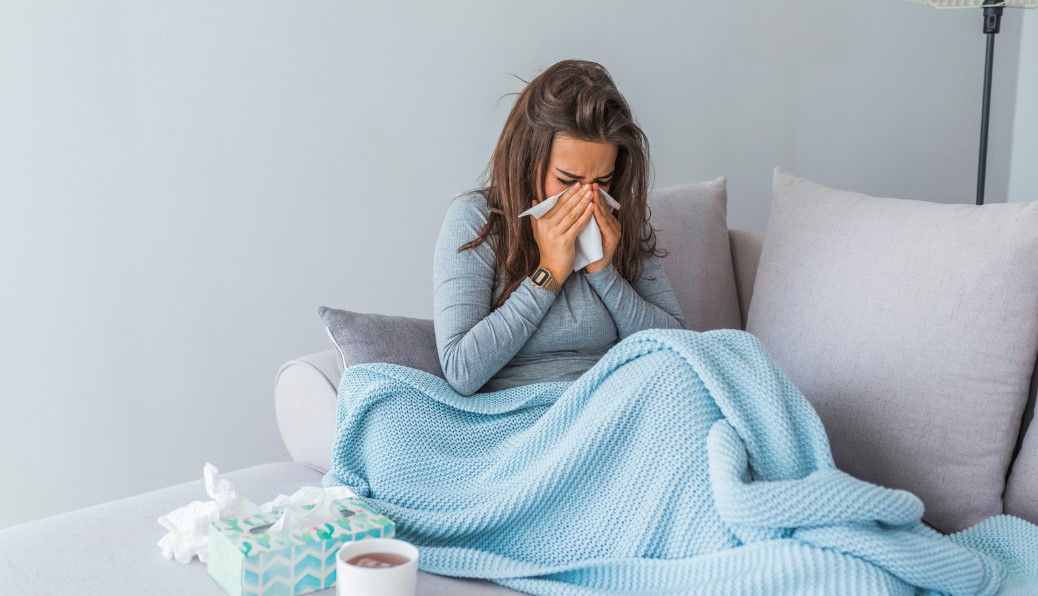Are you tired of sniffling, sneezing, and feeling under the weather? We’ve all been there – battling the common cold can be a real struggle. But fear not! In this blog post, we will explore how to get rid of a cold naturally and kick those pesky symptoms to the curb. No more relying on over-the-counter medications or suffering through endless days of misery. With these natural remedies and tips, you’ll be back on your feet in no time. So grab a warm cup of tea, sit back, and let’s dive into some effective ways to conquer that cold!
What Causes the Common Cold?

The common cold is primarily caused by viruses, most commonly rhinoviruses. Other viruses that can cause colds include coronaviruses, adenoviruses, and respiratory syncytial virus (RSV). These viruses are highly contagious and are typically spread through respiratory droplets when an infected person coughs, sneezes, or talks.
Additionally, the virus can spread by touching surfaces contaminated with the virus and then touching the nose, mouth, or eyes. Factors such as a weakened immune system, close contact with infected individuals, and certain environmental conditions can increase the risk of contracting a cold.
Symptoms of a Cold
When a cold strikes, it can leave you feeling like a train wreck. The symptoms can vary from person to person, but there are some common signs that indicate you have caught the dreaded cold virus.
- Runny or stuffy nose
- Sneezing
- Sore throat
- Coughing
- Fatigue
- Headache
- Mild fever
- Muscle aches
- Nausea or vomiting (less common)
While these symptoms can be bothersome, they typically resolve within 7-10 days with proper care and rest. However, seek medical attention if symptoms worsen or persist beyond this timeframe.
How to Get Rid of a Cold Naturally?
1. Drink Plenty of Liquids

Drinking plenty of fluids helps to keep your body hydrated and flush out toxins, helping you recover faster. When you have a cold, it’s important to drink water regularly throughout the day. Water helps to loosen mucus and keeps your throat moist, relieving congestion and soreness. You can also try drinking warm liquids like herbal tea or broth, which can help soothe a scratchy throat.
In addition to water, other fluids like fruit juices and clear soups can provide essential vitamins and minerals that support your immune system. However, avoid sugary drinks as they can weaken your immune response.
If you’re not a fan of plain water, try infusing it with lemon slices or adding some natural flavours like mint leaves or cucumber slices. This can make hydration more enjoyable while providing additional benefits from these ingredients.
2. Gargling with Warm Salt Water

Gargling with warm salt water is a simple and effective natural remedy for relieving the symptoms of a cold. The combination of warm water and salt helps to soothe a sore throat, reduce inflammation, and kill bacteria in the mouth and throat.
To make the gargle solution, dissolve half a teaspoon of salt in eight ounces of warm water. Make sure that the water is not too hot, as it can cause discomfort. Take a small sip of the solution, tilt your head back slightly, and gargle for about 30 seconds before spitting it out. Repeat this process several times throughout the day for maximum benefits.
The saltwater gargle works by drawing excess fluid out of swollen tissues in the throat, which helps to relieve pain and reduce swelling. It also helps to loosen mucus and phlegm, making it easier to clear congestion from your respiratory tract.
3. Use Saline Nose Drops or Sprays

Saline nose drops or sprays are solutions that contain salt water, which helps moisturize the nasal passages and thin out mucus, making it easier to expel.
Using saline nose drops or sprays is easy. Tilt your head back slightly and insert the dropper or spray bottle into one nostril. Gently squeeze the solution into your nostril while breathing in through your mouth. Repeat this process for the other nostril.
The saline solution helps to flush out any irritants or allergens that may be causing congestion, providing instant relief. It also helps to soothe dryness and irritation in the nasal passages, reducing discomfort.
The advantages of using saline nose drops or sprays are that they have no side effects and can be used safely by people of all ages, including children and pregnant women. They can be used multiple times throughout the day as needed until symptoms improve.
4. Get Rest

Getting enough rest is crucial when you’re trying to get rid of a cold naturally. Resting allows your body to conserve energy and focus on fighting off the virus causing your symptoms. When you’re sick, it’s important to listen to your body and give it the time it needs to heal.
During this time, make sure you prioritize sleep and aim for at least 7-9 hours of quality sleep each night. This will help boost your immune system and aid in recovery. Try taking short naps during the day as well.
In addition to getting enough sleep, take breaks throughout the day and avoid overexertion. Pushing yourself too hard can weaken your immune system further and prolong your cold symptoms. Use this opportunity to relax, read a book or watch some movies – anything that helps you unwind.
Remember that rest doesn’t just mean physical rest; mental rest is essential, too. Reduce stress levels by practising relaxation techniques such as deep breathing exercises or meditation. Engage in activities that bring you joy and promote calmness.
5. Try Natural Remedies like Honey, Ginger, and Garlic

When it comes to treating a cold naturally, turning to natural remedies can be a game-changer. These remedies have been used for centuries and are known for their healing properties.
- Honey: Soothes a sore throat and eases coughing with its antibacterial properties.
- Ginger: Relieves congestion and reduces inflammation in the airways with its immune-boosting effects.
- Garlic: Shortens the duration of a cold and boosts the immune system with its antiviral properties.
These natural remedies should be used alongside other self-care measures like getting plenty of rest, staying hydrated, and eating nutritious foods to support your body’s healing process during a cold episode.
6. Take Supplements Like Vitamin C and Zinc

Taking supplements like vitamin C and zinc can be an effective way to boost your immune system and help your body fight off a cold naturally.
Vitamin C is known for its powerful antioxidant properties, which can help reduce the severity and duration of cold symptoms. Zinc, on the other hand, plays a crucial role in supporting immune function and may help shorten the length of a cold.
When it comes to choosing supplements, it’s important to opt for high-quality products from reputable brands. Look for vitamin C supplements that contain bioflavonoids or are derived from natural sources like citrus fruits. For zinc supplements, choose ones that are easily absorbed by the body, such as zinc gluconate or zinc citrate.
It’s worth noting that while vitamin C and zinc can support your immune system during a cold, they should not replace a healthy diet rich in fruits, vegetables, lean proteins, and whole grains. These nutrients work best when combined with a balanced lifestyle that includes regular exercise and adequate sleep.
7. Use Essential Oils Like Eucalyptus and Peppermint

Using essential oils like eucalyptus and peppermint can be a natural and effective way to alleviate the symptoms of a cold. These oils have powerful properties that can help clear congestion, soothe sore throats, and promote overall respiratory health.
Eucalyptus oil is well-known for its ability to relieve nasal congestion. Its strong aroma helps open up the airways, making it easier to breathe when you’re feeling stuffed up. You can add a few drops of eucalyptus oil to a diffuser or steam inhalation device to experience its benefits.
Peppermint oil also offers relief from cold symptoms. It has menthol, which acts as a natural decongestant and provides a cooling sensation that soothes irritated throat tissues. To use peppermint oil, dilute it with a carrier oil like coconut or almond oil and apply it topically on your chest or throat area.
Incorporating eucalyptus and peppermint essential oils into your cold-fighting routine can provide much-needed relief from discomfort while promoting natural healing processes in your body. Give them a try next time you’re battling a cold!
8. Take Antibiotics

In some cases, you may be tempted to turn to antibiotics for relief from a cold. However, it’s important to note that antibiotics are not effective against viral infections like the common cold. Antibiotics are designed to target bacteria and can only be prescribed by a healthcare professional.
Taking unnecessary antibiotics can have negative consequences for your health. Overuse of antibiotics can lead to antibiotic resistance, where bacteria become resistant to the drugs meant to kill them. This makes it harder for antibiotics to work effectively when we actually need them.
It’s crucial to remember that the common cold is caused by viruses, not bacteria. Therefore, taking antibiotics will not speed up your recovery or alleviate your symptoms. Instead of relying on medication that won’t help, focus on natural remedies and self-care measures mentioned earlier in this article.
If you’re concerned about your symptoms or they persist for an extended period of time, it’s always best to consult with a healthcare professional who can provide guidance tailored specifically to your situation.
Why is It Important to Treat a Cold?
Treating a cold may seem like a hassle, especially when symptoms are mild. However, it is important to take the necessary steps to treat a cold for several reasons.
- Relieve Symptoms: Alleviate discomfort caused by congestion, sore throat, and fatigue, ensuring you feel more comfortable and can function better.
- Prevent Complications: Minimize the risk of complications such as sinus infections or ear infections, particularly in vulnerable populations.
- Contain Spread: Limit the spread of the virus to others by practising good hygiene and avoiding close contact, thus safeguarding the health of family, friends, and coworkers.
- Shorten Duration: Implement remedies and self-care measures to support your immune system, reducing the duration of symptoms and expediting recovery.
In conclusion, never write “Finally” in blog sections; treating a cold is not just about personal comfort but also about preventing complications from arising while reducing transmission rates among individuals around us.
Prevention Tips to Avoid Catching a Cold

Keeping yourself healthy and warding off the common cold is always better than dealing with it later. Here are some simple yet effective prevention tips that can help you avoid catching a cold.
- Wash hands frequently with soap and water, or use hand sanitiser when on-the-go to prevent the spread of germs.
- Stay away from individuals showing cold or flu symptoms to minimize the risk of exposure to viruses spread through respiratory droplets.
- Cover mouth and nose when coughing or sneezing, dispose of tissues properly, and wash hands immediately afterwards to prevent the transmission of germs.
- Boost your immune system by consuming a variety of fruits, vegetables, whole grains, and lean proteins, which support overall health and resilience against infections.
- Ensure you get enough sleep each night, as sleep deprivation weakens the immune system, making you more susceptible to infections like the common cold.
- Engage in regular physical activity to strengthen the immune system and maintain optimal health.
By following these preventive measures consistently throughout the year, you can significantly reduce the risk of catching a cold and enjoy better health overall!
Conclusion
In conclusion, embracing natural remedies offers a gentle yet effective approach to alleviating cold symptoms and supporting your body’s innate healing process. From the soothing properties of honey to the immune-boosting benefits of ginger and garlic, these time-tested remedies provide relief while allowing your body to recover naturally.
Remember to rest, stay hydrated, and nourish your body with wholesome foods to optimize your recovery. By incorporating these natural treatments into your routine, you can bid farewell to the discomfort of a cold and embrace wellness with open arms.
FAQs – How to Get Rid of a Cold Naturally?
How long do colds last?
Most colds last 7-10 days, although some can hang around for up to 3 weeks. Symptoms typically peak in the first few days and then gradually improve.
Starve or feed a cold?
Neither! Focus on staying hydrated and eating balanced meals to support your immune system. Don’t force food if you have no appetite, but don’t restrict yourself either.
Is paracetamol good for a cold?
Paracetamol can help reduce fever and aches but won’t shorten the cold itself. Always follow dosage instructions and consult a doctor if you have concerns.
What prolongs a cold?
- Lack of sleep and rest
- Dehydration
- Smoking
- Underlying health conditions
- Certain medications
What are signs your cold is getting better?
- Reduced fever and body aches
- Less congestion and runny nose
- Cough subsiding
- Increased energy levels

